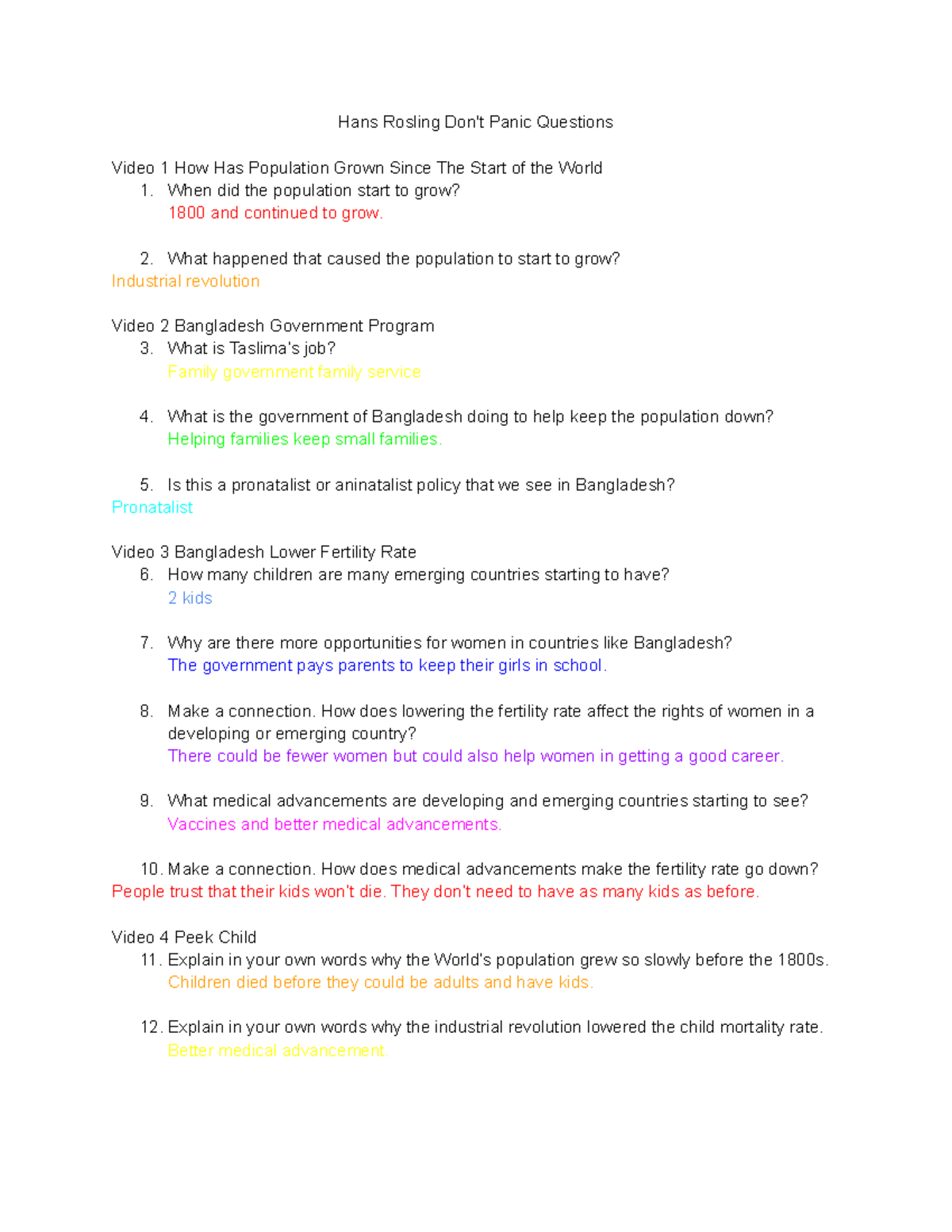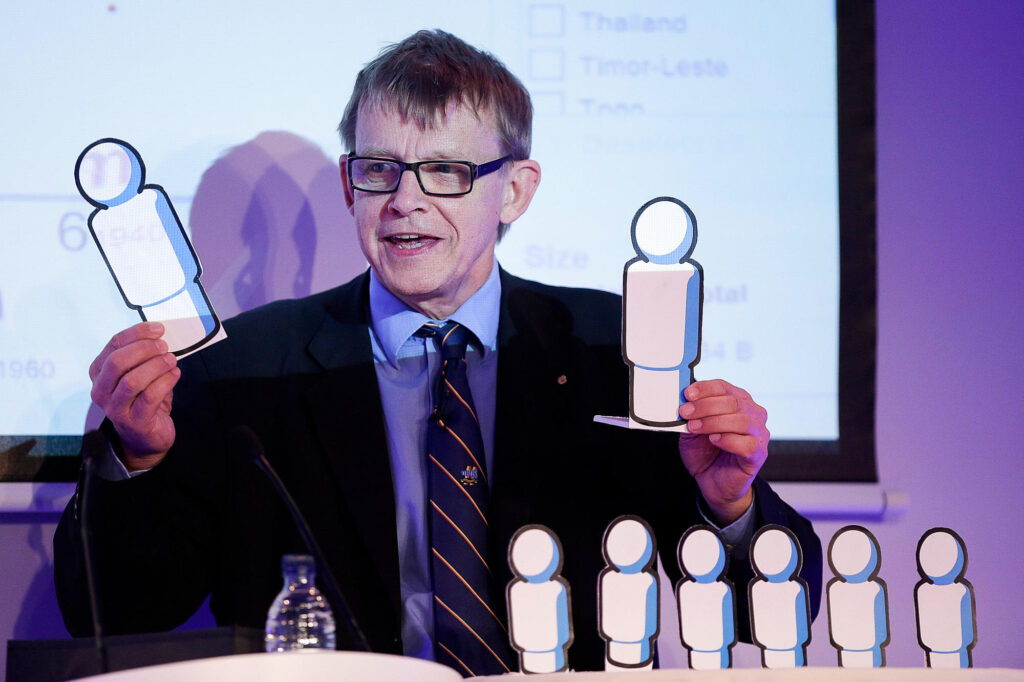Hans Rosling, born in 1948 in Suede, was a doctor And statistician renowned, known for its commitment to understanding global issues. Throughout his career, he has worked within organizations such as theWHO And UNICEF, applying his medical and statistical skills to raise public awareness of global challenges. His work, Factfulness, invites us to reconsider our perception of global reality and to base our opinions on facts, rather than on preconceived ideas. Through her engaging lectures and powerful analyses, Rosling has demonstrated that the world is healthier and more prosperous than we might think, combating prejudice and disinformation.
|
IN BRIEF
|

Hans Rosling, born July 27, 1948 in Uppsala, Sweden, is recognized as a pioneer in the use of statistical data to shed light on global issues. A physician by training, his professional journey extends well beyond the boundaries of medicine, transforming over the years into an influential voice on the international scene.
After studying medicine at Uppsala University, Rosling did not just practice as a doctor. He quickly became involved in humanitarian missions, working with organizations such as theWorld Health Organization (WHO) andUNICEF. During these years, he traveled to several developing countries where he became aware of the crucial importance of reliable data in the fight against poverty and the diseases. Through his experiences, he realized that perception of the world by the general public was often distorted and more pessimistic than reality.
This observation encouraged him to devote himself to a mission: that of sharing a realistic vision of human progress. With a rare popular sense of communication, he succeeds in making complex concepts accessible. Rosling is arguably most famous for his innovative and impactful presentation of data at conferences and events. He used visual tools, such as animated graphics, to illustrate global trends in ways that challenged stereotypes.
His major work, Factfulness, published after his death in 2017, synthesizes his ideas and observations. In this book, Rosling challenges preconceptions about global reality and demonstrates that the world is much better than many believe. It encourages readers to base their opinions on hard facts rather than emotions or myths. In an engaging and dynamic style, it offers tools to understand the data and use them to make informed decisions.
Rosling’s strength lies in his ability to combine his medical and statistical skills to address critical questions like global health, environment, education, and inequalities economic. For example, he demonstrated how improving health and education in low-income countries are key factors in reducing poverty. Through his research, he uncovered unexpected successes that deserved to be celebrated.
Additionally, his work has earned him international recognition, making him a sought-after speaker at prestigious conferences, including TED Talks, where he has captivated millions of viewers. His charisma and passion for social change were obvious, and he inspired others to become aware of global issues and get involved in solving them.
Hans Rosling died on February 7, 2017, leaving behind a lasting legacy. His commitment to clear understanding global challenges continue to inspire generations of researchers, decision-makers and citizens. Through his unique approach, he managed to change our perception of the world and showed us the importance of looking beyond appearances to discover the truth.
Hans Rosling, a leading figure in medicine and statistics, has transformed the perception of global challenges through his passion for data and his commitment to educating the public. His book Factfulness constitutes an invitation to see the world as it is, far from fears and preconceived ideas. The objective of his approach is twofold: first, to break down erroneous stereotypes about development and, second, to encourage everyone to base their opinion on concrete facts.
Table of Contents
ToggleAn exceptional journey
Born in 1948 in Uppsala, Sweden, Hans Rosling initially pursued a career as a doctor. His experience has led him to work with international organizations such as theWorld Health Organization (WHO) andUNICEF. These field experiences allowed him to acquire a pragmatic view of the realities of global health, which he then translated into illuminating statistics in his lectures and writings.
The power of data
Hans Rosling has always advocated the importance of data in decision-making. In a world saturated with biased information, he used innovative visual tools to make data accessible and understandable. His approach has facilitated informed discussion on complex topics, from poverty to health, ossifying the idea that we have the power to change the world for the better, provided we rely on solid facts.
A call for reflection
In his posthumous book, Rosling invites readers to question their worldview and evaluate whether it stands up to the test of fact. By using questionnaires directly inspired by his research, he highlights the extent to which our perceptions are often biased. The way he brings the reader back to a factual understanding of global issues is not only necessary, but also revolutionary.
Education as priority
Rosling firmly believed that education is the key to addressing global challenges. Its work is not limited to sharing data: it represents a real educational movement intended to raise awareness among the general public about persistent problems. Initiatives like Facto Sandwich are here to prove that education and awareness are essential instruments for building a more just society.
A vision of the future
Hans Rosling’s contribution does not stop at his personal legacy. It continues to resonate through contemporary projects focused on sustainability and the reality of the challenges facing our planet. Initiatives, such as the best blue eco initiatives and themaritime transport issues, respond to his call by integrating a fact-based perspective into their message, continuing his work for a better world.
Hans Rosling, an emblematic figure of the modern world, was able to combine his training as a doctor and his passion for statistics in order to shed light on our understanding of the various challenges facing our planet. He has greatly contributed to changing entrenched perceptions by presenting factual data, often ignored, on global development and social realities. Through his posthumous work Factfulness, he set out to demonstrate that the world is often better than we think, thus leading readers to question their vision of reality.
An impressive journey
Born in 1948 in Uppsala, Sweden, Hans Rosling was not content with just one career. As a doctor, he traveled the world and worked for organizations such as the World Health Organization (WHO) and UNICEF. This diverse background has allowed him to acquire a holistic vision of global issues. By blending his medical and statistical skills, Rosling was able to analyze societal challenges using a rigorous methodology, revealing truths often hidden behind fear and ignorance.
Figures that speak
Rosling’s work is based on using data to correlate facts that demonstrate continued progress in many areas, including health, education and the economy. He is a vocal critic of the fear-mongering narratives that often dominate the media and obscure progress. For example, did you know that infant mortality has dropped significantly in recent decades? Through his unique way of presenting statistics, Hans Rosling has transformed complex data into accessible stories, allowing everyone to better understand current global challenges.
A message of hope
Rosling advocated an optimistic view of the world. In an often gloomy and hopeless environment, he stressed the importance of relying on facts rather than impressions. His book Factfulness is not just a collection of figures, but a vibrant call to action, to act with knowledge of the facts. By learning to recognize the truths hidden behind popular beliefs, he encourages readers to realize that solutions exist and that we have the ability to improve our collective future.
Education and awareness
Beyond his written work, Hans Rosling has left his mark on the world with his dynamic and captivating presentations, notably his famous Ted Talks. These interventions, where he used animated graphics to illustrate his remarks, attracted an international audience. Through his commitment to educate and raise awareness, he has transformed audiences from mere spectators to potential agents of change. By making statistics lively and engaging, he inspired generations to devote their time and energy to understanding global issues.
A lasting legacy
Hans Rosling left behind not just an inspiring story, but a method for looking at the world in a more nuanced way. As challenges such as climate change and inequality persist, Rosling’s legacy continues to motivate thousands to address global issues with discernment. His belief in the continued improvement of the human condition, based on facts, raises a vital question: Will we follow his advice and learn to see the world as it really is?









